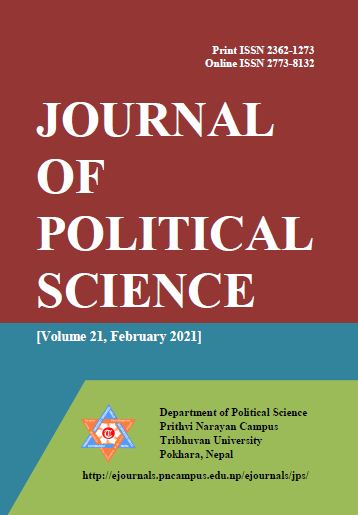Diaspora and Cultural Identity: A Conceptual Review
DOI:
https://doi.org/10.3126/jps.v21i0.35268Keywords:
Being, becoming, cultural identity, diaspora, immigrantsAbstract
The theorists vary in their conceptualizations of diaspora and cultural identity of immigrants. Broadly speaking, the theorizations of diaspora can be categorized into four different groups with their focus on diverse aspects of immigrants’ lives. The first classical phase describes the forced migration of immigrants including victimhood diaspora of Jewish, Africans and Armenians. The second conceptualization incorporates historical, cultural and social diversities of people living in the diaspora. Critiquing the second phase, the third group of theorists deconstructs bipolar notions of the home and host country, and celebrates the inconsistencies, and fluidities of immigrants’ identities in diasporic third space. In contrast, the fourth conceptualizations emphasizes on relevance of the origin and historical exploitation of people of poor countries. Both the historical experiences and present negotiations play decisive roles in the formation of cultural identity of immigrants. The present article briefly reviews different conceptualizations of the diaspora and cultural identity of immigrants.




